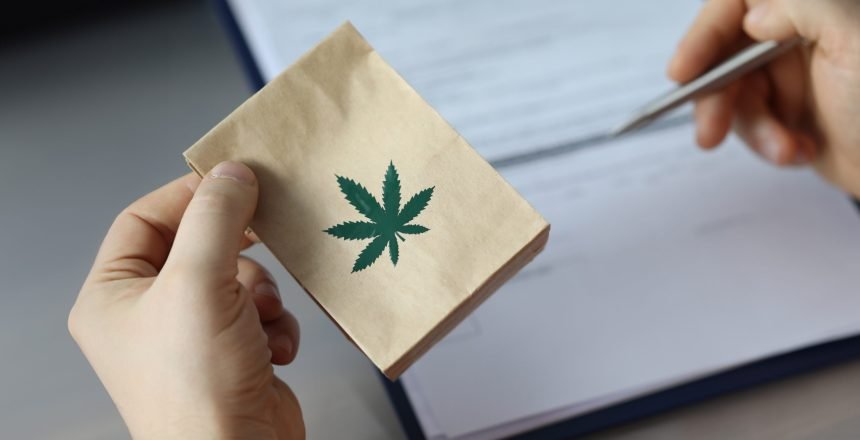The medical cannabis movement is gaining momentum in the U.S., offering a new therapeutic option for those with qualifying health conditions. Each state regulates medical cannabis differently, creating a patchwork of rules and regulations that can be confusing for patients trying to navigate their options. A medical cannabis card is key for legal access, but these cards vary significantly depending on where you live. For individuals living in Oklahoma or considering a move, understanding these differences is crucial to ensure you can access the benefits of medical cannabis without any legal hiccups.
Securing a medical cannabis card means more than just getting the green light to use cannabis—it involves understanding the specific rules your state has laid out. Whether it’s eligibility requirements, legal protections, or product availability, every aspect of the process can shift when you cross state lines. It’s like piecing together a puzzle, where each state adds its own twist.
Varying State Requirements for Obtaining a Medical Cannabis Card
Each state sets its own criteria for who can apply for a medical cannabis card. Generally, individuals need a diagnosis of a qualifying medical condition. However, what’s considered qualifying can differ dramatically. For instance, some states might list chronic pain as a qualifying condition, while others could limit eligibility to more specific illnesses like cancer or HIV/AIDS.
Here’s a quick breakdown of what you might need to meet your state’s criteria:
– Diagnosed with a medical condition that’s approved for cannabis treatment.
– Proof of residency in the state where you are applying.
– A physician’s recommendation or certification.
Documentation also plays a critical role. Typically, patients must provide medical records to support their application, alongside a doctor’s recommendation verifying the need for cannabis treatment. Some states might require specific types of documentation, like an in-depth evaluation from a cannabis physician.
The complexity can feel overwhelming, but breaking down the process step-by-step makes it more manageable. It’s vital for patients to take the time to understand what’s required in their particular state and gather all necessary paperwork. This way, they can avoid delays and smoothly proceed through the application process.
Differences in Legal Protections and Patient Rights
Once you have a medical cannabis card, what kinds of legal protections do you have? This depends entirely on where you live. States often have different laws regarding how much cannabis you can possess, where you can use it, and even who can grow it at home.
– Laws on possession limits vary. Some states might allow enough for a month’s use, while others impose stricter limits.
– Home cultivation rules differ. While states like California permit home growing, others might prohibit it altogether.
– Workplace protections are a tricky area. Some states offer clear protections against workplace discrimination, but many leave this area vague.
Understanding these legal nuances is key to ensuring that you don’t accidentally overstep the law. Every patient should know their rights and limits, especially when it comes to travel or relocating to another state with their cannabis supply. Ignoring these can easily lead to legal troubles down the road.
Access and Availability of Medical Cannabis Products
The way states handle medical cannabis also varies when it comes to access and availability. Some states have a large number of dispensaries, making it relatively easy for cardholders to find and purchase products. Others may have fewer options, which can limit access for patients, especially in rural areas. Additionally, state laws dictate what products are available. Some states offer a broad range of cannabis forms, such as edibles, tinctures, oils, and flower, while others might restrict sales to specific types, like oils.
Dealing with product potency is another aspect to consider, as states may impose limits on THC content or other cannabinoids. This can affect treatment options for patients seeking stronger products to manage their conditions. Pricing can also be affected by state regulations. Factors like local taxes, transportation costs, and demand influence product prices, which can vary widely from state to state.
For patients, understanding the local landscape is essential to making informed decisions about where and how to access medical cannabis products. As various states experiment with regulations, patients are encouraged to stay updated on changes that might affect their access or choice of products.
Adjusting to State-Specific Laws When Moving or Traveling
If you plan to move to another state, or travel frequently, it’s important to know how these transitions affect your medical cannabis use. Different states have different recognition policies. Some states may accept an out-of-state medical cannabis card, while others may not allow you to purchase or possess cannabis with an out-of-state card. If you’re moving permanently, you’ll need to apply for a new card in your new state of residence.
When traveling, remember that crossing state lines with cannabis is illegal under federal law, even if both states have legalized medical cannabis. It’s important to plan accordingly, which may include leaving your supply behind or arranging for legal access at your destination.
For those relocating, here are a few steps to ease the transition:
– Research the new state’s medical cannabis laws and eligibility requirements.
– Set up an appointment with a healthcare provider in the new state if needed.
– Gather any required documentation or medical records for the new application process.
Whether you’re moving or just visiting, staying informed and complying with local regulations will help ensure a smooth experience.
Navigating the Journey with a Trusted Oklahoma Medical Cannabis Card Provider
Navigating the varied landscape of medical cannabis across different states requires patience and a bit of research. The differences in regulations, rights, and availability highlight how unique each state’s approach is to medical cannabis. It’s essential to stay informed and understand the specifics of your state’s laws to fully benefit from your medical cannabis card.
In states like Oklahoma, where regulations may differ from other parts of the country, it’s even more important to have accurate information. This ensures that patients not only access the resources they need but do so in a way that is compliant with local laws. Remember, staying informed is the best way to ensure that you make the most of your medical cannabis experience wherever you are.
Curious about getting started with medical cannabis in Oklahoma? Green Hope Wellness can guide you through the process of obtaining your medical cannabis card in Oklahoma. Reach out today to explore your options for accessing the right treatments to meet your needs, all while staying compliant with local laws.


